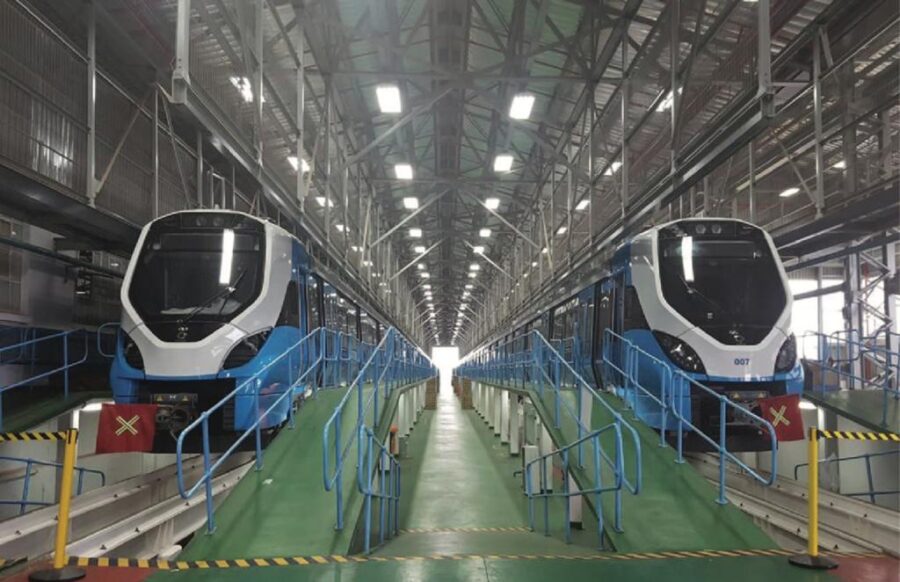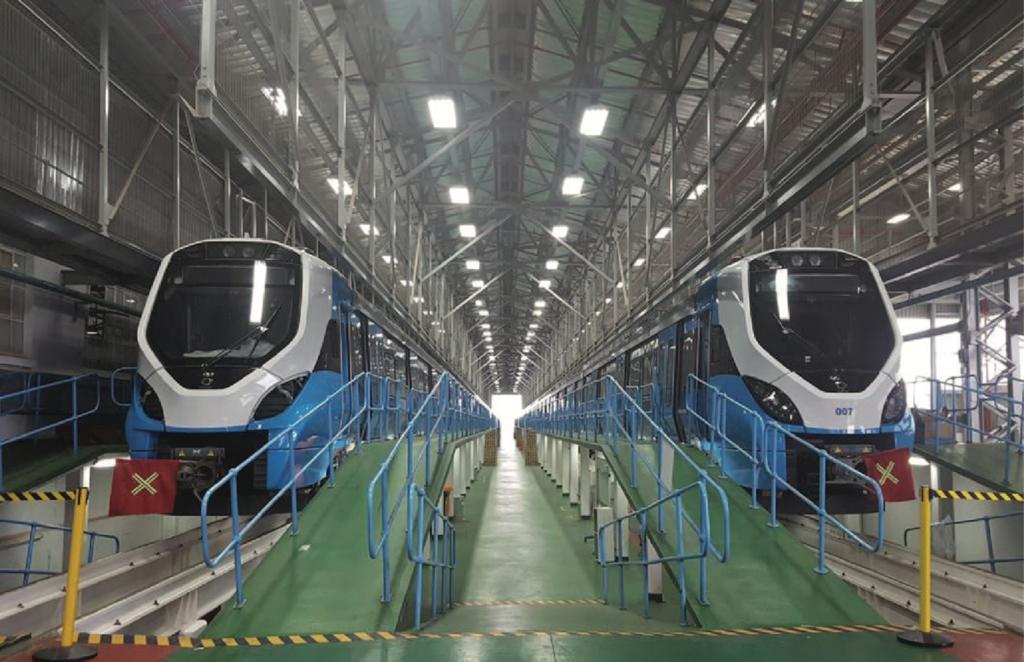
Can This Man Save South Africa’s Trains?
If you listen to the challenges facing Bongisizwe Mpondo, your first thought is, who in their right mind would want his job? They are Sisyphean. What was once one of the world’s great rail networks (read your history) has, through more than a decade of neglect, mismanagement, corrupt and bungled contracts, theft and vandalism, been […]

If you listen to the challenges facing Bongisizwe Mpondo, your first thought is, who in their right mind would want his job? They are Sisyphean. What was once one of the world’s great rail networks (read your history) has, through more than a decade of neglect, mismanagement, corrupt and bungled contracts, theft and vandalism, been driven into the ground. Literally. And Mpondo’s job is to try and get it moving again and to get passengers – safely – back on trains.

Appointed in December last year as the administrator (and hopeful saviour) of PRASA – the Passenger Railway Association of South Africa – Mpondo stepped into a hornet’s nest. Anyone who has been following the demise of PRASA knows about the rampant cable theft (but maybe not about the rampant track theft, which there is as well), the mysterious arson of railway coaches and stations, the dubious reign of Lucky Montana, probably one of the most implicated of government officials (think of him as the railway version of Dudu Myeni, destroying PRASA the way she did SAA), and a veritable musical chairs of board directors who did nothing but collect their fat pay cheques as they watched the system collapse.
Mpondo doesn’t mince his words. PRASA is at rock bottom. It’s a broken business. Anything that should work has been decimated. It has to be built from the foundations up again. His initial tools were the auditor general’s report into PRASA (which found R26 billion in irregular expenditure) and the famous Thuli Madonsela report, “Derailed,” which came out – believe it or not – in 2015 already. Last year, four officials fingered in “Derailed” were finally dismissed, responsible for PRASA’s irregular security contracts that date back to 2009.

Those contracts, one could say, are where a big part of the problems started. More than 5,000 people were provided from outside to guard railway tracks, depots, infrastructure, stations and rolling stock. Under their watch, cable theft and arson spiked, and it has long been rumoured that the very security companies who were paid to protect PRASA were looting it.
Things got worse when the board announced last year that those security contracts were coming to an end. Vandalism and crime suddenly went up, and so did anti-PRASA postings on social media. Mpondo doesn’t say it was orchestrated, but it’s all pretty fishy.

PRASA has moved to insource its own security guards, which has already been achieved in Gauteng and will be complete countrywide by the end of August. No more private security companies. Five hundred extra marshals have also been employed to patrol stations, bringing the total number of employees to about 18,000.

Getting the tracks, trains and stations secured is a major part of the fix-up operation, and Mpondo knows it’s not going to happen overnight and probably not even during his 12-month tenure. (Whether he takes on another 12 months depends on his family, who have been coming under strain, what with him working 24/7. Mpondo intimates that the job has also come, not unexpectedly, with some threats to his safety.) But, he tells SAPeople, he wants to let people know that there is “fresh air” blowing through the utility, a new order, a new way of doing business.

According to Mpondo, who’s background is in helping businesses out of trouble, numerous exciting announcements will be made in the next few months. New trains. Stations reopening. Long-distance trains restarting. A panel to listen to suggestions by the public. Technical interventions like drones and armored vehicles. Having the crime of cable theft declared economic sabotage. Walls being built for security. And so on.
I’m skeptical – and I tell Mpondo as much- and so would anyone be who has watched state-owned enterprises and other government departments crash and burn over the last two decades. There have been plenty of “exciting announcements” at PRASA before. (Think only of the EMU blue trains made locally by Gibela which have been widely used in publicity shoots for PRASA – and which you can see photos of here – but still have to appear on any track besides the Pretoria-Pienaarspoort line.) Numerous times over the years, too, PRASA has said it would build walls to secure railway lines in congested areas. Mpondo, in his defence, says one has to look at who exactly made those promises, suggesting they are all people who are now gone. So, you have to take his word for it that the walls and all the other good stuff will indeed happen.

There are encouraging signs, Mpondo being one of them. He does seem to have a very hectic schedule and the PRASA goings-on are regularly visible on social media. In February this year, he appointed several advisers, including Willie Mathebula, who was seconded from the Treasury, and Mathetha Mokonyama, a civil engineer and transport professional with the CSIR.
Bids have been invited to build the four-metre walls along the two busiest lines – the Central Line in Cape Town and the Mabopane-Pretoria line. Meetings have been taking place between the ministers of transport, police, state security and justice to coordinate action against the syndicates that are orchestrating cable and rail theft. In the past, not only were thieves not caught, but when they were there was little prosecution. Steps are also being taken to coordinate action between PRASA’s insourced security and the SA Railway Police (yes, there is still such a division).
In the next two months, 10 sets of the modern blue EMU trains are meant to appear on the Cape Town-Simonstown line. Restarting the long-distance routes – from Johannesburg to, respectively, Cape Town, East London, Messina and Durban – is also being talked about, although Mpondo said one of the ongoing problems is the lack of locomotives. Under Lucky Montana (who was also implicated in Madonsela’s “Derailed” report), PRASA bought 70 locomotives through a company called Swifambo that turned out to be too tall for the tracks.
As Mpondo says, it’s easy to focus on the negative because there is so much of it, but he would rather focus on what needs to be done.
